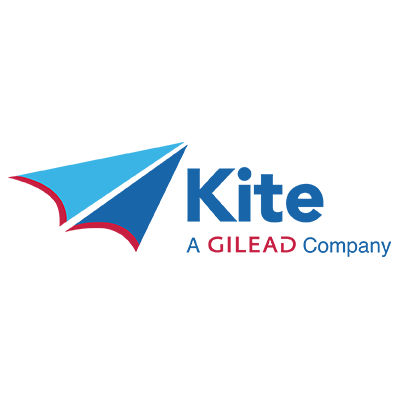预约演示
更新于:2026-01-21

Gilead Sciences, Inc.
更新于:2026-01-21
概览
标签
肿瘤
呼吸系统疾病
免疫系统疾病
小分子化药
ADC
单克隆抗体
疾病领域得分
一眼洞穿机构专注的疾病领域
暂无数据
技术平台
公司药物应用最多的技术
暂无数据
靶点
公司最常开发的靶点
暂无数据
| 排名前五的药物类型 | 数量 |
|---|---|
| 小分子化药 | 103 |
| 单克隆抗体 | 12 |
| 自体CAR-T | 10 |
| 化学药 | 7 |
| CAR-T | 7 |
关联
181
项与 Gilead Sciences, Inc. 相关的药物靶点 |
作用机制 PPARδ激动剂 |
非在研适应症 |
最高研发阶段批准上市 |
首次获批国家/地区 美国 |
首次获批日期2024-08-14 |
作用机制 HIV-1 capsid抑制剂 |
在研适应症 |
非在研适应症- |
最高研发阶段批准上市 |
首次获批国家/地区 欧盟 [+3] |
首次获批日期2022-08-17 |
靶点 |
作用机制 PD-1抑制剂 |
在研机构 |
原研机构 |
在研适应症 |
最高研发阶段批准上市 |
首次获批国家/地区 中国 |
首次获批日期2021-08-25 |
1,350
项与 Gilead Sciences, Inc. 相关的临床试验NCT06525389
Liposomal Amphotericin B and Flucytosine Antifungal Strategy for Talaromycosis (LAmB-FAST)
LAmB-FAST is a factorial randomized controlled trial simultaneously testing two interventions in one trial. LAmB-FAST seeks to inform treatment guidelines on the induction and maintenance therapy of HIV-associated talaromycosis (formerly called penicilliosis) and will answer the following three questions:
1. Is induction therapy using a single 10 mg/kg dose of liposomal amphotericin B (LAmB) is more effective than 14 days of the conventional deoxycholate amphotericin B (DAmB)?
2. Is adding flucytosine (5FC) to amphotericin B more effective than amphotericin B alone?
3. Is HIV viral load guided stopping of itraconazole maintenance therapy as effective as the current CD4 guided strategy in the prevention of talaromycosis relapse?
1. Is induction therapy using a single 10 mg/kg dose of liposomal amphotericin B (LAmB) is more effective than 14 days of the conventional deoxycholate amphotericin B (DAmB)?
2. Is adding flucytosine (5FC) to amphotericin B more effective than amphotericin B alone?
3. Is HIV viral load guided stopping of itraconazole maintenance therapy as effective as the current CD4 guided strategy in the prevention of talaromycosis relapse?
开始日期2026-04-01 |
申办/合作机构  Duke University Duke University [+4] |
ACTRN12625001346460
A Phase 1 Open-label, Multiregional, Multicenter, BasketStudy Evaluating the Safety and Efficacy of KITE-363, anAutologous Anti-CD19/CD20 CAR T-cell Therapy inParticipants with Relapsed/Refractory AutoimmuneNeurologic Diseases
开始日期2026-02-18 |
申办/合作机构 |
NCT07031219
Syndemic Triple HIV/HBV/HCV Virus Screening Via EMR Automation at Primary Care Clinics
Design:
This will be a within-subjects repeated-measures design, testing an electronic medical record pop-up alert linked to order panels for screening blood tests for human immunodeficiency virus (HIV), hepatitis B virus (HBV), and hepatitis C virus (HCV). Study participants will be primary care providers. For each participating provider, their encounter will be randomized to either control (no alert; no changes to EMR interface) or an alert with triple-testing order panel intervention arm (alert linked to order panel with screening tests for all three bloodborne viruses (BBVs) selected by default; the alert will be triggered when a provider attempts to order a screening test for at least one BBV). The alert linked to triple testing orders will only be triggered if the provider orders a virus BBV screening test based on their normal practice and standard of care for their patient. Providers will see which orders are selected prior to signing (finalizing) them; therefore, this study will be unblinded. To mitigate the effect of unblinding, randomization will occur at the encounter level which will lead to providers experiencing both the control and intervention conditions randomly throughout the duration of the study.
Outcomes/endpoints:
The investigators will compare incidences of HIV, HBV, and HCV diagnoses between the two encounter conditions, estimate number of cases missed by not triple-testing, estimate laboratory costs per condition, and measure patient encounters per condition.
This will be a within-subjects repeated-measures design, testing an electronic medical record pop-up alert linked to order panels for screening blood tests for human immunodeficiency virus (HIV), hepatitis B virus (HBV), and hepatitis C virus (HCV). Study participants will be primary care providers. For each participating provider, their encounter will be randomized to either control (no alert; no changes to EMR interface) or an alert with triple-testing order panel intervention arm (alert linked to order panel with screening tests for all three bloodborne viruses (BBVs) selected by default; the alert will be triggered when a provider attempts to order a screening test for at least one BBV). The alert linked to triple testing orders will only be triggered if the provider orders a virus BBV screening test based on their normal practice and standard of care for their patient. Providers will see which orders are selected prior to signing (finalizing) them; therefore, this study will be unblinded. To mitigate the effect of unblinding, randomization will occur at the encounter level which will lead to providers experiencing both the control and intervention conditions randomly throughout the duration of the study.
Outcomes/endpoints:
The investigators will compare incidences of HIV, HBV, and HCV diagnoses between the two encounter conditions, estimate number of cases missed by not triple-testing, estimate laboratory costs per condition, and measure patient encounters per condition.
开始日期2026-02-15 |
100 项与 Gilead Sciences, Inc. 相关的临床结果
登录后查看更多信息
0 项与 Gilead Sciences, Inc. 相关的专利(医药)
登录后查看更多信息
1,759
项与 Gilead Sciences, Inc. 相关的文献(医药)2026-03-01·JOURNAL OF PHARMACEUTICAL AND BIOMEDICAL ANALYSIS
Trace-level quantitation of N-((2-isopropylthiazol-4-yl)methyl)-N-methylnitrous amide by liquid chromatography-tandem mass spectrometry
Article
作者: Pereira, Alban R ; Carr, Gavin ; Li, Yi ; Zhang, Yu ; Li, Dan ; Foti, Chris ; Mustafa, Khawla ; Adhikari, Sarju ; Catbagan, Chad
Nitrosamines, a class of N-nitroso compounds, have raised significant health concerns due to their status as highly potent mutagenic carcinogens. Recently, the potential occurrence of the nitrosamine drug substance-related impurity, N-((2-isopropylthiazol-4-yl)methyl)-N-methylnitrous amide (NITMA), also known as N-nitroso-2,4-thiazole amine (NNTA), has been reported in some finished drug products containing ritonavir. Stringent acceptable intake (AI) limits, as low as 18 ng/day, have been recommended for NITMA by various regulatory agencies, requiring a need for highly sensitive quantitative methods. In this study, a versatile and sensitive liquid chromatography-tandem mass spectrometry (LC-MS/MS) method was developed and validated for the detection and quantitation of NITMA in ritonavir drug substance and test formulation blends of ritonavir. NITMA was ionized and quantified in positive mode APCI using multiple reaction monitoring. The formation of NITMA from its precursor, 1-(2-isopropylthiazol-4-yl)-N-methylmethanamine (ITMA), was studied under accelerated conditions to ultimately prevent its artifactual formation during sample preparation and analysis. Adequate peak selectivity for NITMA was also studied to demonstrate the versatility of the method in the presence of high concentrations of APIs, impurities, degradation products, and excipients. The method was successfully validated as per ICH Q2(R2) guidelines over a wide concentration range (0.0225-0.27 ng/mL). The validated quantitation limit (0.0225 ng/mL) aligns with current regulatory requirements for NITMA. Overall, the newly developed method was found suitable to support risk assessment strategies and regulatory compliance.
2026-01-17·JOURNAL OF INFECTIOUS DISEASES
Resistance Analyses of Lenacapavir, Emtricitabine/Tenofovir Alafenamide and Emtricitabine/Tenofovir Disoproxil Fumarate in the PURPOSE 1 and 2 Studies
Article
作者: Hendricks, Matthew R ; Andreatta, Kristen ; Callebaut, Christian ; Brown, Lillian B ; Cox, Stephanie ; Kintu, Alexander ; Carter, Christoph C ; Li, Jiani
Abstract:
Background:
Lenacapavir (LEN) is an HIV-1 capsid inhibitor being evaluated for pre-exposure prophylaxis (PrEP). The PURPOSE trials assessed the efficacy of LEN and emtricitabine/tenofovir disoproxil fumarate (F/TDF) in cisgender women (PURPOSE 1; P1) and in cisgender men, transgender women, transgender men and gender non-binary persons (PURPOSE 2; P2). Emtricitabine/tenofovir alafenamide (F/TAF) was also assessed in P1. Both studies demonstrated the superiority of LEN to F/TDF. We describe resistance analyses from P1 and P2, which provide the first data regarding emergent drug resistance in the context of LEN for PrEP.
Methods:
HIV testing was performed at screening, baseline, and every study visit. Participants who acquired HIV-1 with a viral load of ≥200 copies/mL were evaluated for resistance by genotyping of the HIV-1 capsid, protease, reverse transcriptase and integrase genes at HIV diagnosis. Adherence in the F/TDF and F/TAF groups was measured by dried blood spot.
Results:
Resistance to LEN was detected in 0 of 2134 participants (P1) and 2 of 2179 participants (P2); both developed N74D. Four participants in each study receiving LEN were found to have unrecognized HIV-1 at baseline; 4/8 participants developed N74D. In P1, 2/37 participants analyzed for resistance in the F/TAF group had M184I ± K65R. In the F/TDF groups, M184M/I/V was detected in 1/16 participants (P1) and 1/9 participants (P2).
Conclusions:
Acquisition of HIV while receiving LEN and resistance to LEN in the context of unrecognized HIV was rare but associated with the emergence of the N74D LEN resistance-associated substitution in this population.
2026-01-08·ACS Medicinal Chemistry Letters
Examination of Noncanonical Kinase Hinge Binders Leads to Thiadiazoles as Potent IRAK4 Inhibitors
Article
作者: Ndukwe, Marilyn S. ; Suekawa-Pirrone, Kimberly ; Brizgys, Gediminas ; Mukherjee, Prasenjit Kumar ; Chin, Elbert ; Bacon, Elizabeth M. ; Shatskikh, Marina E. ; Park, Grace Y. ; Ammann, Stephen E. ; Ferrao, Ryan D. ; Hammond, Angela ; Chou, Chienhung ; Yang, Zheng-Yu ; Zipfel, Sheila M. ; Wright, Nathan E. ; Cottell, Jeromy J. ; Warr, Matthew R. ; Taylor, James G.
A hallmark of most known small-molecule orthosteric kinase inhibitors is hydrogen-bonding to the hinge-region of the kinase to mimic the hinge interaction of adenine. Herein we report our studies on deviation from canonical hinge-binders in the context of IRAK4 inhibitors. Small-molecule inhibitors of IRAK4 have generated interest as potential treatments for inflammatory diseases. Notably, in our discovery efforts we identified pyridinyl-thiadiazoles as noncanonical hinge-binders. X-ray structural evidence supports that the thiadiazole moiety engages in a rare intermolecular noncovalent sulfur-oxygen interaction. This thiadiazole series, exemplified by compounds 19 and 22, has shown promise for potent, selective, orally bioavailable IRAK4 inhibitors.
10,000
项与 Gilead Sciences, Inc. 相关的新闻(医药)2026-01-21
·健识局
1月20日,凯因科技发布公告,主动撤回培集成干扰素α-2注射液“派益生”乙肝适应症的上市申请。凯因科技表示,将根据国家药监局的有关要求,进一步补充临床病例研究,根据情况再次提交注册申请。
凯因科技虽然并没有完全放弃这一新适应症,却已经将研发费用1.11亿元计提为减值准备。2025年前三季度,凯因科技净利润1.12亿元,这次计提基本上把公司去年三个季度的利润全部亏完了。
投资者普遍感到困惑与不安。如果项目仍有希望,为何急于进行如此巨额的减值处理?这是否意味着公司内部实际上已对这款乙肝新药的前景判了“死刑”?在资本市场上,截止今日收盘,凯因科技股价跌超13%。对此,凯因科技方面告诉健识局:此次公司进行研发支出减值计提,并非放弃这个项目,主要基于谨慎性原则。
乙肝的药物研发一直难度很大,此前不少海外药企的药物研发都以失败告终。凯因科技的长效干扰素也不算新药,在临床上有过治疗乙肝的案例,此前已有两款进口、一款国产长效干扰素获批乙肝适应症。为什么到了凯因科技这里,这款老药的适应症开拓却变得如此困难?
一款早已上市的“老药”
干扰素实际是一个诞生于上世纪80年代的“老药”,用于治疗乙肝治已有多年历史。可以说长效干扰素和核苷酸类似物一起,构成了慢性乙肝的一线治疗方案。
从2003年罗氏的“派罗欣”进入中国开始,中国的长效干扰素主要就是罗氏和默沙东两家企业控制。直到2016年,特宝生物研发的派格宾获批上市,成为首款国产长效干扰素。2017年5月,派格宾又成功开拓慢性乙肝适应症,凭借本土优势与更具竞争力的价格,派格宾迅速打开局面,销售额快速增长。
2016年之后,默沙东和罗氏的产品相继停产退出中国市场,特宝生物的派格宾开始独占,2024 年已拿下 90% 的市占率,大卖24.47 亿元,成为特宝生物的拳头产品之一。去年10月11日,派格宾获批临床治愈成人慢性乙型肝炎,成为全球首个获批该适应症的药物。
这正是凯因科技要开发乙肝治疗适应症的原因。公司的“派益生”同样是长效干扰素,理论上对乙肝也会有治疗效果。2018年6月,“派益生”上市首个适应症是慢性丙肝。但当时吉利德“丙肝神药”未进医保,先一步进入基药目录,很快就彻底治愈了丙肝。凯因科技的产品可以算生不逢时。
所以,凯因科技早早针对乙肝适应症进行了布局。中国是乙肝大国,慢性 HBV 感染人群高达 7500 万。2021年12月,“派益生”启动针乙肝适应症的III期临床。2023年上半年,该III期临床试验已完成48周给药,进入随访阶段。2024年9月。凯因科技正式提交了新增乙肝适应症的上市许可申请。
在一些投资者看来,凯因科技拿下乙肝适应症应该是板上钉钉的,毕竟增加新适应症,要比新药上市简单得多。更何况,此前上市的长效干扰素也都已成功拿下乙肝适应症,凯因科技并不是第一个吃螃蟹的人。
有效,但不够好的成绩单
出乎意料的是,凯因科技没能一举拿下。
从凯因科技公布的临床数据来看,“派益生”并非没有效果。公告中提到,其能将50%以上低HBsAg(乙肝表面抗原)水平及干扰素应答等部分人群的HBsAg降至10IU/mL以下,超过20%的患者实现HBsAg清除,这表明部分患者获益明显。
目前,慢性乙肝尚无法完全治愈,当下的临床治疗目标是最大限度地追求功能性治愈。而HBsAg清除则是评估功能性治愈的核心指标,其意味着病毒复制被持久抑制,肝脏疾病进展风险大幅降低。目前以干扰素为基础的治疗方案,在慢性乙肝特定人群中已实现了超过30%的持久HBsAg清除率。复旦大学附属中山医院廖家杰主任教授就在采访时对乙肝新药研发提出三点期望,其中有一点就是HBsAg转阴率应>30%,HBsAg依旧能够维持阴性。
“派益生”距离这一业界公认的标准指标还有一定差距。
当前药品监管部门对于创新药的标准越来越高,越来越强调新药的临床价值。派益生可能难以对现有药物构成差异化优势。
此外,从临床设计来看,凯因科技可能为了追求一鸣惊人的效果,在选择临床主要终点的时候,给自己上了难度,全球第一个挑战长效干扰素48周联合核苷类,以乙肝表面抗原转阴为终点的注册临床研究。相比之下,特宝生物的长效干扰素在三期临床中,选择的终点是第72周HBeAg血清转换的受试者比例。
慢性病治疗周期越长,意味着能疗效展现更充分,越容易接近临床终点。凯因科技为了展现出临床优势,设置了更高的证明门槛,需要用更短的时间,证明不逊于甚至更优疗效。
不过凯因科技的工作人员告诉健识局,这样的临床设计是出于为患者考虑,“目前乙肝的用药周期比较长,长期用药可能会产生一些副作用。当然用药周期越短,挑战性也越大、越困难。”
面对乙肝这一庞大的市场,凯因科技并没有就此放弃。“乙肝药物研发本就不易,后续将继续与CDE沟通,进一步补充临床病例研究,根据情况再次提交注册申请。”凯因科技方面告诉健识局。
至于何时重新提交申请,凯因科技则表示尚无明确时间。目前,浩博医药、广生堂、瑞博生物等多家药企也都在研发乙肝新药。全球范围内,GSK有望功能性治愈乙肝的新药三期已宣告成功,不久后有望上市,留给凯因科技的时间并不充裕。
撰稿丨方涛之
编辑丨江芸 贾亭
运营|廿十三
插图|视觉中国
声明:健识局原创内容,未经许可请勿转载
10亿美元重磅单品专利到期,跨国药企启动新一轮裁员
三闯资本市场,靠无痛分娩的医院要当“山东民营医院第一股”
委托加工≠贴牌!健康消费别被概念迷惑
2025第六届论健·年度星榜“年度突破性创新产品之星”揭晓
2025第六届论健·年度星榜“年度AI创新实践之星”揭晓
上市批准寡核苷酸临床3期
2026-01-21
·深蓝观
旧梦 | 撰文
翻看复宏汉霖的港股上市公司公告和公司新闻,会发现其全球临床和上市申请获批的消息正以一种相当高的频率刷屏。
在当下中国创新药出海的叙事中,大多数同行还在依赖CXO、通过License-out“借船出海”时,复宏汉霖这种自主拿证、自主落地、自主运营的做法反倒显得有些“格格不入”。复宏汉霖似乎已经跳过了拿资源换门票的时代,它已经站在了整个Game之中。
上一个有如此景象的还是的百济神州。
出海,不是各种分析PPT、研报里的数字,不是简单的渗透率x用户规模的估值公式,而是实实在在地、需要跨越不同文化与政治壁垒,经过注册、审批、生产、销售,把药送到全球患者手中。
喊一句出海很简单,但真正迈出脚去做很难,拿到出海实质化的商业成果更是难上加难。想要和得到,中间还差着做到。
PD-1中国市场式微,biosimilar更不是各种“重磅分子”的代名词,但复宏汉霖这两年通过这两个品类,一步一个脚印,在欧洲、美国、东南中亚、拉美等市场一点点的插上了属于中国新药的旗帜。
过去,复宏汉霖作为 H 股公司,内资股东持有的近70%股无法流通,这在很大程度上限制了公司在二级市场的流动性。随着 2025 年全流通方案的实质性推进,这种流动性瓶颈被彻底打破。
而如今,当公司进一步掏出HLX22和HLX43这两个机制全新、临床数据亮眼、竞争格局良好的重磅新品,在自己铺好的新药国际化道路上再出发之时,市场看到的是一个完全不一样的、拥有全链条全球化运营能力的复宏汉霖。
-01-
JPM2026上的中国创新药
2026年旧金山时间1月15号下午,复宏汉霖首席执行官朱俊在JPM会场做了以“A BioPharma Company from China to the World”为主题的分享报告。
在过去几年,中国创新药在持续不断地借着JPM舞台,向全球输出来自东方在生命科学领域的智慧,同时在这个全球生物创新药领域的朝圣地去找到自己想要的东西。
最开始,我们带去的是尚待验证、甚至不被信任的临床数据,MNC甚至需要重新跑一遍数据来验证有效性;随后,随着一些成熟分子的成功出海,这种疑虑逐渐被扎实的产品力打消。而如今,当 MNC 普遍面临专利悬崖密集到来的季节,中国创新药所提供的重磅管线已成为其抵御衰退、补充管线的关键。
这种合作模式已超越了单纯的资产买断,走向了全面深化、长期性的价值共创。
在今年的JPM现场,来自中国创新力量的这种进化成果直接体现在了数据上:中国的占比已攀升至全球BD市场的三分之一,2025年出海交易规模突破千亿美元。这一波中美创新药领域的“各取所需”,甚至一度冲淡了地缘政治的喧嚣。
今年,复宏汉霖第一次以演讲嘉宾的角色站到了舞台中央。
在会场,朱俊展示了一份极具张力的成绩单:截至目前,复宏汉霖已有10款产品在全球多个国家获批上市,覆盖60个市场,惠及患者人数超95万。
这一次,公司也给全球实体瘤患者,带来了两款全新机制的疗法。
一个是重新定义ADC“广谱性”的HLX43(PD-L1 ADC)。
这是目前唯一一款同时有PD-L1抑制和ADC(内吞+肿瘤微环境)杀伤双重机制的ADC产品,借助PD-L1这个特殊的肿瘤免疫逃逸靶点,让很多肿瘤免疫治疗耐药后的患者有了新的治疗手段。而PD-L1的泛表达,也给其提供了泛肿瘤治疗的可能性。
去年ASCO上,HLX43成功实现对冷肿瘤的攻克,早期临床数据显示在 PD-L1 阴性(TPS<1%)的肺癌亚组中,HLX43 斩获了39.5%的ORR;并在此后WCLC上,以亮眼的亚组数据证明了其能够去打破了Biomarker限制,定义了其作为一款ADC的广谱价值。
这两次数据更新,让复宏汉霖以一己之力带动了此前一度沉寂的整个PD-L1 ADC这个品类的热度。
如果说HLX43证明了复宏汉霖在新机制探索上的成功,那么HLX22作为一款经典HER2赛道里的新品,则进一步验证了公司在临床前的精细化开发能力。
HLX22作为一款结合在Domain IV的新表位抗体,与经典产品曲妥珠单抗表位不重叠,二者的结合能很好的去攻克胃癌这样一个“HER2发挥空间大,但患者因为体弱、耐受性不好而错失很多市场主流以HER2为靶点的抗体和ADC品类”。
目前,HLX22已经在各种大小学术会议上证明了自己替代当下晚期胃癌一线疗法的潜力。
而当复宏汉霖正式把HLX43和HLX22这两款新药、以及公司基于其创新平台矩阵孵化的一堆候选分子正式搬上台前时,公司也彻底撕掉了此前“创新不足”的标签。这也是复宏汉霖在2026年JPM走向舞台中央的底气之一。
但这只是序章。
朱俊随后也公布了公司的“2030 蓝图”:到2030年,复宏汉霖计划在全球上市超过20款产品,其中在美欧市场的上市产品有望超过15款。这是复宏汉霖作为下一个全面出海、全面成功的中国Biotech的可能性体现。
而这背后,也是复宏汉霖独自探索出了的借助成熟产品落地+创新开发所打造的一套完整、系统性的全球化运营体系——一条独属于中国biotech的全球化之路。
-02-
当出海旧叙事遇上新时期
在展望从biotech到全球MNC的故事,大家很乐意去把吉利德和再生元碰到台前,然后标榜自身会成为“中国的/下一个XXX”。
但事实上,这两家公司都是特殊时间和特殊市场下的产物。
对于中国药企,在当前国内的支付市场,创新产品的商业化回报无法像美国高达17%的医疗GDP那般撑起一家公司在长时间里死磕某一两个赛道,就更不用提全球化体系的建立。光一个全球大三期要烧的钱,发再多次再融资都不够。
其次,在当下一个专利透明、效率极致卷、合作模式成熟,MNC和biotech都虎视眈眈的前提下,靠一个“革命性单品逆袭”的时代已经彻底过去。
除非一种特殊情况,某家公司做的东西很重磅,然后大家一窝蜂涌上来之后,这时整个Class利空频出,所有人退潮,只有它在继续坚持,然后证明全世界都错了只有它是对的。
但这种运气的因素太多,有条件去赌的不多,赌成功的就更少了。
大部分时候是中美两地的biotech刚发现一个苗头,要么是国内齐鲁恒瑞石药+一众biotech快速涌上来,要么是MNC大厂抛一个橄榄枝,这家公司的天花板就被焊死在某个BD的里程碑付款里。
借助一个好的、成本相对低、回报相对高的品种,去搭建好成熟的路径,然后一步一个脚印,真正迈向全球化。这或许才是一个当下中国乃至全球生物医药行业能去复制的一个路径。
那么回到最初的问题:真正的“系统性的全球化能力”到底长什么样子?
复宏汉霖在2026年JPM上给出了它的理解。
在临床前,公司通过两款重磅分子(22和43),以及多特异性 T 细胞衔接器(Hinova TCE)、自主 ADC 平台(Hanjugator™)以及 AI 驱动的 HAI Club,来证明了自己有对标世界前沿的药物发现能力。目前,公司在ADC、多抗、TCE等一系列创新机理分子领域已经完成了新一轮候选管线的全球化布局。
临床阶段,大家拼的是全球患者招募能力以及大PI、大学者等专家资源。目前复宏汉霖已在美国、欧盟、东南亚、日本等主流医药高地搭建了一支近600人团队的自主运营的临床团队,覆盖20多个国家共计超1000个Site。
公司在H药的美国桥接临床上,用超常规实验患者数量的高规格标准和对标中国的招募速度,验证了其全球临床运营的高效性。
自主的生产制造能力决定了公司的供货节奏不再受制于人。复宏汉霖拥有一套经过中、美、欧三地GMP认证的高标准生产体系,经历过近100项由各国药监机构和国际巨头进行的实地核查,让复宏汉霖的产能有了全球最严苛标准的背书。
注册层面,biosimilar对于大多数地区的药政来讲流程和标准不输新药。复宏汉霖在地舒单抗类似药(HLX14)的美欧同步获批(相较于汉曲优长达四年的时间差),标志着复宏汉霖已经完全掌握了全球主流药监机构的“语言体系”,也验证了其注册能力的持续进化。
至于商业化渠道上,复宏汉霖同样借助Biosimilar品类编织了一张覆盖近百个国家和地区的商业网络,深度牵手 Sandoz、Organon、Accord 等全球细分领域的霸主。
创新产品意味着更大的空间,未来复宏汉霖在全球范围层面和这些合作伙伴交涉时,也有了更高的话语权。
在当下大多数国内创新型制药企业还在借助License deal去修炼这一套体系的时候,复宏汉霖已经完成了五大全球化能力的验证闭环。
这意味着,在面对中国的创新药资产,复宏汉霖从一个MNC的“供应商”,变成了其真正的“竞争对手”。
而和MNC站在同一舞台之后,也便意味着复宏汉霖有机会去撼动那些原本只有MNC专属、是真正意义上的制药行业圣杯的“全球商业化利益”。
-03-
小结
前两年,职场上有一句流传甚广的老鸡汤:不要用战术上的勤奋来掩盖战略上的懒惰。
但在最近两年的生物医药圈,情况似乎正在走向另一个极端。很多公司和从业者正沉溺于某种“战略上的勤奋”——大家热衷于在PPT里挖掘那些前无古人的FIC靶点,痴迷于勾勒出那些动辄百亿美元的宏大蓝图。在这样一个专利透明、信息流转极快的时代,大家太过于拘泥于寻找所谓的“终极路径”,反而忘记了脚下的路该怎么走。
事实上,在这个效率极致内卷的年代,真正愿意脚踏实地把一件件“小事”做好的公司和人,反而成了最稀缺的资源。
在很多旁观者眼中,Biosimilar(生物类似药)缺乏想象力,PD-1的市场格局早已崩坏,似乎只有那些从未被探索过的无人区才值得投入。这种对“重磅叙事”的过度追求,让许多人忽略了制药行业最本质的逻辑:把药做出来,送到患者手中。
复宏汉霖过去几年的轨迹,就是一场战术上的极致胜利。
把一款药从临床前的微小优化,扎扎实实地推向临床,再顶着各种壁垒推向全球市场,在每一个环节里去死磕合规、死磕工艺、死磕数据。这听起来似乎不如一个“颠覆性靶点”那么性感,但在这个真实的商业世界里,这就是一件平凡而伟大的事情。
而如今,复宏汉霖也已经在创新度和全球化能力上渐渐对齐真正意义上的MNC,慢也是一种快。
在当下这个AI可以极大提升药物开发效率,优化流程体系、甚至可以预测临床数据的年代里,这种跨越不同国家药政法规、跨越真实的临床一线现场、跨越每一个生产工艺关卡的真实落地能力,才是作为“人”和一家真实的“公司”最不可替代的部分。
这也是中国Biotech在2026年JPM舞台上,能让全球买家从审视转为拥抱的一个最底层原因之一。
......
加入读者群请添加:
石慧玲:ss4500201
2026-01-21
IDC2026论坛聚焦:化学创新药物发现,protac、分子胶、AI助力药物发现等热点内容,合作热线177 0186 0390.
过去,开发小分子药物的关键是找到蛋白质靶点。但是,人体内约有1.9万种蛋白质,绝大部分蛋白质都属于不可成药靶点。根据《人类蛋白质图谱》,目前已知与疾病相关的蛋白有5068种,运用在获批小分子药物的靶点约700种,潜在可成药靶点约1200种,还有3000多种蛋白质被称为“不可成药”靶点。
目前,仅针对小部分可靶向性的靶点,每年产生的抑制剂靶向药物的市场就超过千亿美金,如果能够将剩下的3000多种不可靶向性靶点用于研发药物,市场不可估量。而分子胶药物,正是解开这一蕴含巨大市场的“潘多拉魔盒”的关键钥匙。
作为一种能“黏合”蛋白、调控其功能的新兴治疗策略,分子胶通过蛋白靶向降解(TPD),让不可成药靶点成为可成药靶点,进而实现药物开发。今年以来,已有达歌生物、康朴生物、劲方医药、嘉越医药、万春宏基、人福利康、BMS、C4 Therapeutics、Monte Rosa、Nurix Therapeutics、Pin Therapeutics、Revolution Medicines等诸多海内外药企,凭借分子胶临床管线,在血液瘤、实体瘤、炎症等领域取得了令人瞩目的进展。
动脉网不完全统计,2025年在临床领域取得进展的分子胶管线
显然,从诱导蛋白降解到调控信号通路,从血液肿瘤到实体瘤,分子胶正从不同技术路径与不同疾病赛道等多个维度,重塑着药物研发的边界。
01
2025年,分子胶进入“多靶点、多适应症”开发阶段
2025年分子胶研发的爆发,其深刻性远不止于管线数量的简单叠加,而是标志着一场从“边缘创新”向“主流叙事”的战略性跃迁,从根本上重塑了行业的靶点选择逻辑与投资价值判断。
在靶点选择方面,分子胶的靶点版图从传统的转录因子(如IKZF1/3)迅猛扩张至激酶(CK1α)、RNA结合蛋白(HuR)、GTP酶(RAS)及翻译终止因子(GSPT1)等,这种多样性绝非偶然,它揭示了分子胶技术内核的通用性:即通过设计或发现小分子来“重写”细胞内的蛋白相互作用网络。
更具战略意义的是,Revolution(RMC-6291,靶点:KRAS)、达歌生物(DEG6498,靶点:HuR)、Seed(ST-01156,靶点:RBM39 )等企业在新兴靶点领域取得的突破性进展,已超越了个案成功的范畴,汇集在一起形成了一个强有力的“概念验证链条”,向整个行业宣告:基于蛋白界面调控的“分子胶逻辑”,是解锁那部分缺乏传统活性口袋的靶点宝藏的可行,甚至可能是最优的路径。
而这些新兴靶点则对应着新兴适应症的拓展,分子胶药物已从最初的血液肿瘤领域逐步向实体瘤、自身免疫性疾病、神经系统疾病等多领域延伸。分子胶药物在靶点和适应症拓展领域的进展,不仅直接刺激了针对更多难成药靶点的研发立项,更是间接引来了艾伯维、礼来、罗氏、吉利德、诺华等MNC,通过BD的形式快速布局该赛道。就在今年,该领域已达成了数项重磅合作,累计合作金额超110亿美元。
动脉网不完全统计,2025年分子胶领域达成的BD
综上,2025年,分子胶领域仍然延续着2024年的BD热潮,呈现出“多靶点、多疾病”突破的发展趋势,其核心驱动力在于它系统性地证明了自身并非局限于某个特殊靶点(如CRBN依赖性降解)的“技巧性”工具,而是作为一种普适性的药物作用范式,能够针对不同类型的蛋白功能和疾病机制提供全新的解决方案。
因此,2025年的全景画卷,描绘的是一幅生态位迁移的图景:分子胶正从一个需要额外证明自身价值的“新兴技术”,加速转变为评估任何重要疾病靶点时都必须纳入考量的“标准选项”之一,这既是其技术成熟的里程碑,也是其开始深刻影响全球新药研发底层逻辑的起点。
02
多维度技术融合,让分子胶研发进入工程化发展阶段
驱动分子胶快速发展的底层源泉,是药物筛选技术的突破和应用。
传统药物筛选模式,类似于在未知空间中探寻特定目标,其核心策略是追求高亲和力的单靶点结合,可类比为寻找一把能精准适配特定锁芯的钥匙。然而,分子胶的作用机制要求其同时与两个蛋白进行弱相互作用,并有效诱导二者相互靠近,这一过程可看作是同时寻找两把钥匙,分别开启两个看似并无关联的锁,进而构建出全新的分子相互作用模式。
这种本质差异致使传统筛选方法在分子胶研发中难以发挥效用,犹如以锤代镊,完全无法契合分子胶研发的需求。这一关键矛盾的存在,迫切推动了全新筛选理念与技术组合的诞生,成为分子胶研发历程中必须突破的重要障碍。
在这场技术变革中,“广度-深度”双轨战略作为关键解决方案应运而生。
在广度方面,DNA编码化合物库(DEL)通过将小分子化合物与独特的DNA序列共价连接,可实现对海量化合物的高效编码、存储和筛选。DEL技术已成为药物发现领域的重要工具,尤其在寻找新颖的苗头化合物、探索难成药靶点(如膜蛋白、蛋白-蛋白相互作用界面)等方面展现出独特优势,被广泛应用于分子胶新药研发项目中。
例如,药明康德所构建的多样化DEL库,目前已收纳超过500亿种结构各异的小分子,每个小分子均带有独特的DNA条形码标识,如同化学空间中的独特个体,便于科研人员进行快速识别与深入研究。在探索新型分子胶靶点的过程中,DEL库能够以极低的成本、无偏向性地在这一广袤化学空间中搜索E3-配体-靶蛋白之间的三元关系初始线索,为分子胶的发现拓展了广阔的可能性。
药明康德分子胶技术平台,图源参考文章
在对已知分子胶系统的深入探索中,聚焦化合物库则充分利用现有分子胶结构知识进行靶向设计。例如,针对E3连接酶cereblon(CRBN)的免疫调节药物(IMiDs)化合物库便是典型案例。通过对CRBN蛋白互作区域进行系统性化学修饰,药明康德构建了约600万个精炼化合物,这些化合物基于现有分子胶结构知识进行针对性设计与优化,显著提高了发现高亲和力、高特异性分子胶的概率,提升了对具有明确构效关系靶点的筛选效率。
除双轨战略外,多技术融合成为分子胶研发中不可或缺的环节,构建起从“线索发现”到“候选物优化”的完整技术闭环。亲和筛选质谱(ASMS)作为一种无标记筛选技术,通过对比分子在单蛋白与双蛋白环境下的质谱信号差异,精准识别出能够促进蛋白-蛋白相互作用的潜在分子胶候选物,在海量化合物中筛选出具有潜在价值的分子胶。
高通量筛选(HTS)技术以“一孔一化合物”的自动化运行模式,结合蛋白结合能力或降解能力等功能性实验,能够快速筛选出具有生物活性的候选分子,极大地提高了筛选效率与准确性,确保只有最具潜力的分子进入后续优化环节。
结构生物学则通过解析蛋白-分子胶复合物的三维结构,为分子胶的优化提供关键的结构信息,助力科研人员深入理解分子胶与蛋白之间的相互作用模式,从而有针对性地对分子胶进行结构优化,为分子胶的性能提升提供了重要依据。
这些技术的深度融合,标志着分子胶研发进入“多维度协同”的工程化发展阶段。在这一阶段,各项技术相互协作、优势互补,共同推动分子胶从实验室基础研究向临床应用转化,为分子胶药物的研发与应用奠定了坚实的技术基础。
03
分子胶让癌症患者6个月生存率达100%
在2025年众多分子胶新药研发中,海内外企业均在不同靶点、不同疾病领域取得了突破性进展,其临床数据与作用机制为分子胶疗法的潜力提供了有力证据。
在海外,Pin Therapeutics、Revolution Medicines、Monte Rosa Therapeutics、C4 Therapeutics等分子胶明星企业,均在今年取得了积极进展。以Revolution Medicines的Elironrasib(RMC-6291)与Daraxonrasib(RMC-6236)为例。
6月,Revolution Medicines宣布,FDA授予靶向RAS(ON)多选择性抑制剂的新药Daraxonrasib(RMC-6236)用于治疗携带KRAS G12突变的经治胰腺癌BTD(突破性药物资格)。该BTD基于Daraxonrasib在PDAC(胰腺导管腺癌)患者中观察到的积极早期临床证据:中位无进展生存期(PFS)达8.8个月(远超传统化疗的3-5个月);6个月生存率高达100%(对照组仅约60%);客观缓解率(ORR)36%(部分患者肿瘤明显缩小);安全性良好,未出现严重不良反应。目前RMC-6236 3期临床研究正在开展中,预计2026年完成入组。
Elironrasib(RMC-6291)则是Revolution Medicines研发的RAS(ON)G12C选择性抑制剂,属于非降解型分子胶。10月,Revolution Medicines宣布,elironrasib在既往接受过KRAS(OFF)G12C抑制剂治疗的KRAS G12C突变型非小细胞肺癌(NSCLC)患者中,获得了积极临床数据:客观缓解率(ORR)达42%,疾病控制率(DCR)为79%,中位缓解持续时间为11.2个月,中位无进展生存期(mPFS)为6.2个月,12个月总生存率为62%。目前,elironrasib正在探索与免疫疗法(如帕博利珠单抗)、其他靶向药(如SHP2抑制剂)的联合方案,以进一步提升疗效,并同步计划推进至2期、3期临床试验,验证其在一线治疗及更多瘤种中的应用价值。
在国内,亦有不少创新药企近期在分子胶领域取得了突破性进展。
例如,12月,达歌生物宣布公司全球首个针对first-in-class靶点HuR(Human antigen R)的分子胶降解剂DEG6498,已于11月25日在中国完成首位临床试验受试者给药。HuR是一种RNA结合蛋白,在癌症、炎症和代谢等疾病的进程中发挥着关键性的作用,此前被业界认为是无法成药的靶点。达歌生物凭借其自主建立的特异性分子胶药物发现平台与创新技术,成功攻克了这一难题。DEG6498是一种强效、口服生物利用度高的分子胶降解剂小分子药物,能诱导E3泛素连接酶Cereblon(CRBN)与HuR的相互作用,从而促进HuR蛋白的靶向降解。作为全球第一款靶向HuR的分子胶降解剂,DEG6498有望满足多个适应症领域尚未被满足的迫切医疗需求。
11月,康朴生物公布分子胶降解剂epaldeudomide (KPG-818) 用于治疗血液肿瘤的I期临床试验结果。KPG-818归属E3泛素连接酶复合物CRL4-CRBN调节剂,对靶点CRBN具有高亲和力。在既往接受过两个度胺类药物、至少一种蛋白酶抑制剂及一种抗CD38单抗的难治或复发多发性骨髓瘤患者中,KPG-818与地塞米松联用,客观缓解率(ORR)为50%,疾病控制率(DCR)为94%。它通过高效降解锌指转录因子Aiolos(IKZF3)和Ikaros(IKZF1),发挥广谱免疫调节、抗血管生成和抗肿瘤作用。
此外,今年还有劲方医药、嘉越医药、万春宏基、人福利康等中国药企,均在分子胶领域取得了良好进展。
海外内药企不约而同布局分子胶管线,是由于分子胶赛道技术壁垒高,竞争相对较小,且正从肿瘤向更广阔的疾病领域渗透。更重要的是,在分子胶领域,目前仅有沙利度胺、来那度胺和泊马度胺这三款药物走向了商业化道路。高技术壁垒+市场存在大量空白,为我国初创药企提供了与国际明星药企同台竞技的舞台,也为具备创新能力的国内药企提供了弯道超车的战略窗口。未来,随着临床试验数据不断涌现,一些具有潜力的国产分子胶管线有望脱颖而出,为我国药企在全球市场赢得更多的话语权。
04
未来展望:分子胶的下一个十年挑战何在?
尽管分子胶在2025年取得了令人瞩目的进展,但在未来的发展道路上,仍面临着诸多严峻的挑战。
靶点选择性是分子胶面临的首要挑战之一。在复杂的生物体系中,确保分子胶能够精准地作用于目标靶点,而不与其他非目标蛋白发生不必要的相互作用,是实现安全有效治疗的关键。然而,目前的分子胶技术在靶点选择性方面仍存在一定的局限性,这可能导致脱靶效应的发生,进而引发一系列不良反应。例如,某些分子胶在降解目标蛋白的同时,可能会意外地影响其他正常生理功能相关蛋白的稳定性,对机体造成潜在的损害。
脱靶毒性也是一个不容忽视的问题。即使分子胶能够相对准确地靶向目标蛋白,但由于其作用机制涉及诱导蛋白间的相互作用,可能会在细胞内引发一系列连锁反应,导致不可预测的毒性。这种脱靶毒性不仅会限制分子胶药物的剂量和疗效,还可能阻碍其进一步的临床应用。如何在提高分子胶活性的同时,最大限度地降低脱靶毒性,是科研人员亟待解决的难题。
耐药机制的研究同样至关重要。随着分子胶药物在临床上的应用逐渐增多,肿瘤细胞等疾病相关细胞可能会逐渐产生耐药性,从而降低分子胶的治疗效果。深入探究分子胶的耐药机制,对于开发有效的应对策略,延长分子胶药物的使用寿命具有重要意义。目前,关于分子胶耐药机制的研究还相对较少,需要进一步加强这方面的探索。
针对非CRBN系统的E3连接酶开发也是未来分子胶研究的重点方向之一。目前,大部分分子胶的研发都集中在以CRBN为基础的系统上,这在一定程度上限制了分子胶的应用范围和发展潜力。开发针对其他E3连接酶的分子胶,不仅可以拓宽分子胶的靶点选择,还可能为一些难治性疾病提供新的治疗手段。然而,由于不同E3连接酶的结构和功能差异较大,开发针对非CRBN系统的E3连接酶分子胶面临着巨大的技术挑战。
在未来的临床探索中,将分子胶与免疫疗法、靶向疗法联用,实现协同增效是一个极具前景的研究方向。免疫疗法通过激活机体自身的免疫系统来对抗肿瘤等疾病,靶向疗法则能够精准地作用于肿瘤细胞的特定靶点,而分子胶可以通过降解关键蛋白来调节细胞信号通路。三者的联合应用有可能从多个角度对疾病进行攻击,提高治疗效果。例如,在肿瘤治疗中,分子胶可以与免疫检查点抑制剂联合使用,一方面通过降解肿瘤细胞中的免疫抑制蛋白,增强机体的免疫反应;另一方面,免疫检查点抑制剂可以激活免疫系统,使其更好地识别和攻击肿瘤细胞,从而实现协同治疗的效果。
随着人工智能、结构生物学等工具的不断发展和融入,分子胶的理性设计与优化效率有望得到进一步提升。人工智能可以通过对大量数据的分析和学习,预测分子胶与靶点蛋白之间的相互作用,为分子胶的设计提供指导。结构生物学则可以通过解析分子胶与靶点蛋白的三维结构,深入了解其作用机制,从而有针对性地进行优化。这些工具的应用将有助于推动分子胶从“偶然发现”走向“系统研发”,加速分子胶药物的开发进程,为患者带来更多的治疗选择。
05
结语
2025年,分子胶不再只是实验室里的科学构想,而是逐步成为临床治疗的新选项。从罕见肿瘤到常见突变,从降解到调控,分子胶正在拓展药物作用的维度。其背后,是一体化研发平台、多维筛选技术与跨领域协作的共同推动。未来,随着更多分子胶走向临床后期乃至上市,我们有望见证一批真正改变治疗格局的“胶水药物”诞生。而这,也正是药物创新从“跟随”走向“引领”的关键一步。
END
免责声明:本文仅作知识交流与分享及科普目的,不涉及商业宣传,不作为相关医疗指导或用药建议。文章如有侵权请联系删除。
IDC2026论坛聚焦:化学创新药物发现,protac、分子胶、AI助力药物发现等热点内容,合作热线177 0186 0390.
戳“阅读原文”立即领取IDC2026免费参会名额!
100 项与 Gilead Sciences, Inc. 相关的药物交易
登录后查看更多信息
100 项与 Gilead Sciences, Inc. 相关的转化医学
登录后查看更多信息
组织架构
使用我们的机构树数据加速您的研究。
登录
或

管线布局
2026年02月09日管线快照
管线布局中药物为当前组织机构及其子机构作为药物机构进行统计,早期临床1期并入临床1期,临床1/2期并入临床2期,临床2/3期并入临床3期
药物发现
19
69
临床前
临床1期
32
18
临床2期
临床3期
12
31
批准上市
其他
207
登录后查看更多信息
当前项目
| 药物(靶点) | 适应症 | 全球最高研发状态 |
|---|---|---|
戈沙妥组单抗 ( Top I x Trop-2 ) | 三阴性乳腺癌 更多 | 批准上市 |
索磷布韦 ( NS5B polymerase ) | 慢性丙型肝炎 更多 | 批准上市 |
司拉德帕 ( PPARδ ) | 原发性胆汁性胆管炎 更多 | 批准上市 |
索磷布韦维帕他韦 ( NS5A x NS5B polymerase ) | 慢性丙型肝炎 更多 | 批准上市 |
来迪派韦索磷布韦 ( NS5A x NS5B polymerase ) | 慢性丙型肝炎基因型 1 更多 | 批准上市 |
登录后查看更多信息
药物交易
使用我们的药物交易数据加速您的研究。
登录
或

转化医学
使用我们的转化医学数据加速您的研究。
登录
或

营收
使用 Synapse 探索超过 36 万个组织的财务状况。
登录
或

科研基金(NIH)
访问超过 200 万项资助和基金信息,以提升您的研究之旅。
登录
或

投资
深入了解从初创企业到成熟企业的最新公司投资动态。
登录
或

融资
发掘融资趋势以验证和推进您的投资机会。
登录
或

生物医药百科问答
全新生物医药AI Agent 覆盖科研全链路,让突破性发现快人一步
立即开始免费试用!
智慧芽新药情报库是智慧芽专为生命科学人士构建的基于AI的创新药情报平台,助您全方位提升您的研发与决策效率。
立即开始数据试用!
智慧芽新药库数据也通过智慧芽数据服务平台,以API或者数据包形式对外开放,助您更加充分利用智慧芽新药情报信息。
生物序列数据库
生物药研发创新
免费使用
化学结构数据库
小分子化药研发创新
免费使用




